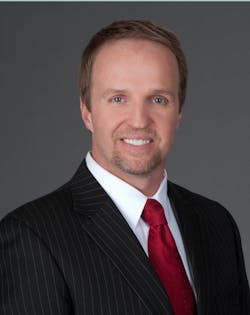Right off the bat let me disclose that I live in the Atlanta metro area and am a Georgia native. So my take on the news about Atlanta making strong moves to be a manufacturing center will be biased. But, as John Adams said, “facts are stubborn things” and the trend toward Atlanta’s growing role in the future of U.S. manufacturing is hard to ignore, regardless of one’s bias.
Here’s why I think Atlanta may become the center of American’s next major manufacturing phase, as Chicago was to American manufacturing’s last major phase.
Just before I released my recent post on the explosion of manufacturing activity in the Southeast I received news about the recent opening of Panasonic Automotive Systems R&D center in midtown Atlanta. This $2 million “innovation lab” center employs software, systems and electric engineers working on next-generation multimedia infotainment systems for cars equipped with smartphone and Internet connectivity and advanced navigation technology.
But Atlanta has been a big R&D center for some time, due largely to the location of Georgia Tech in midtown, and this trend continues. GM recently announced that one of its four new R&D centers in the U.S. will be located in Roswell (a northern suburb of Atlanta). On top of this, major automation companies like Siemens and B&R have located their North American headquarters in the Atlanta area, as has automotive manufacturer Porsche.
To find out if any actual manufacturing, beyond R&D and headquarter sites, might start taking root in Atlanta, I spoke with Brian McGowan, president and CEO of Invest Atlanta, the economic development authority for city of Atlanta. As evidence of significant new manufacturing coming to Georgia, he cited Caterpillar’s recent re-shoring of some of its Japanese manufacturing to the Athens, Ga., area.
McGowan says he sees Atlanta as being well suited to advanced manufacturing. “Advanced manufacturing requires a higher level of skill, and skill is increasingly gravitating toward cities more and more,” he said. With Georgia Tech, Emory, and the Centers for Disease Control all located here, he sees Atlanta as having a definite advantage for medical device manufacturers. He cited CardioMEMS, a new startup in Atlanta, as a good example of the future of medical device manufacturing in Atlanta. “CardioMEMS is manufacturing here in a small way now, but as they ramp up, we want to capture that in the city of Atlanta,” McGowan said.
A major manufacturing development Invest Atlanta is working on now involves discussions with the Department of Defense over the Fort McPherson site just south of the city.
“With 500 acres of developable space only 5 minutes from the world’s busiest airport and 5 minutes from downtown, we really feel there is an advanced manufacturing play here for this facility and we’re looking to get the property turned over from the DoD for use this year,” said McGowan.
Having worked as secretary of commerce for California Governor Arnold Schwarzenegger for two years, McGowan experienced first hand the difficulties states can have attracting and keeping manufacturers.
“The high cost of business on the West Coast was a major problem for manufacturers and we couldn't keep manufacturing there. Beyond being a very business-friendly area, Atlanta has high quality of life factors and a highly educated and skilled workforce compared to other parts of U.S. Plus you have an airport where you can reach 80 percent of US population within two hours,” he said.
There’s also a major the rail line convergence here, which has been the case since the founding of the city (when it was called Terminus because of its position as the end point of multiple rail lines). This fact, coupled with the recent Army Corps of Engineers’ approval to deepen the port of Savannah leads Atlanta Mayor Kasim Reed (McGowan’s boss) to see Atlanta becoming a major logistics center for the eastern seaboard, and that will serve as another big attractor for manufacturing.
With all these plans in the offing, I’ll tone down my soapbox boosterism of Atlanta for now to see if any of these plans come to fruition.
Leaders relevant to this article:


